Filter by

Knowledge, concepts, and categories /
The study of mental representation is a central concern in contemporary cognitive psychology. Knowledge, Concepts, and Categories is unusual in that it presents key conclusions from across the different subfields of cognitive psychology. Readers will find data from many areas, including developmental psychology, formal modeling, neuropsychology, connectionism, and philosophy. The difficulty of …
- Edition
- 1
- ISBN/ISSN
- 9780262621182
- Collation
- -
- Series Title
- -
- Call Number
- -
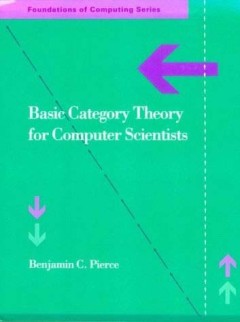
Basic category theory for computer scientists
Category theory is a branch of pure mathematics that is becoming an increasingly important tool in theoretical computer science, especially in programming language semantics, domain theory, and concurrency, where it is already a standard language of discourse. Assuming a minimum of mathematical preparation, Basic Category Theory for Computer Scientists provides a straightforward presentation of…
- Edition
- -
- ISBN/ISSN
- 9780262288460
- Collation
- 1 online resource (xiii, 100 pages).
- Series Title
- -
- Call Number
- -

Categories we live by :how we classify everyone and everything
An in-depth analysis of how humanity's compulsion to categorize affects every aspect of our lived experience. The minute we are born -- sometimes even before -- we are categorized. From there, classifications dog our every step: to school, work, the doctor's office, and even the grave. Despite the vast diversity and individuality in every life, we seek patterns, organization, and control. In Ca…
- Edition
- -
- ISBN/ISSN
- 026237711X
- Collation
- 1 online resource (192 pages).
- Series Title
- -
- Call Number
- -
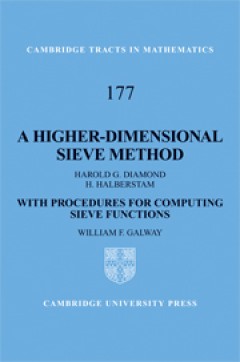
A Higher-Dimensional Sieve Method With Procedures for Computing Sieve Functions
Nearly a hundred years have passed since Viggo Brun invented his famous sieve, and the use of sieve methods is constantly evolving. As probability and combinatorics have penetrated the fabric of mathematical activity, sieve methods have become more versatile and sophisticated and in recent years have played a part in some of the most spectacular mathematical discoveries. Many arithmetical inves…
- Edition
- -
- ISBN/ISSN
- 9780511542909
- Collation
- -
- Series Title
- Cambridge Tracts in Mathematics (177)
- Call Number
- -
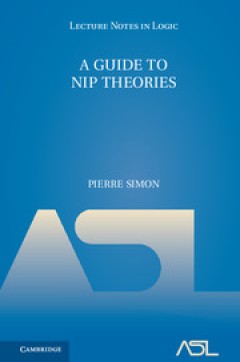
A Guide to NIP Theories
The study of NIP theories has received much attention from model theorists in the last decade, fuelled by applications to o-minimal structures and valued fields. This book, the first to be written on NIP theories, is an introduction to the subject that will appeal to anyone interested in model theory: graduate students and researchers in the field, as well as those in nearby areas such as combi…
- Edition
- -
- ISBN/ISSN
- 9781107415133
- Collation
- -
- Series Title
- -
- Call Number
- -
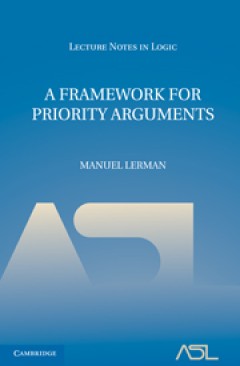
A General Algebraic Semantics for Sentential Logics
Since their inception, the Perspectives in Logic and Lecture Notes in Logic series have published seminal works by leading logicians. Many of the original books in the series have been unavailable for years, but they are now in print once again. In this volume, the seventh publication in the Lecture Notes in Logic series, Font and Jansana develop a very general approach to the algebraization of…
- Edition
- -
- ISBN/ISSN
- 9781316716915
- Collation
- -
- Series Title
- Lecture Notes in Logic (7)
- Call Number
- -
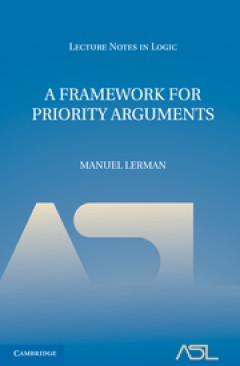
A Framework for Priority Arguments
This book presents a unifying framework for using priority arguments to prove theorems in computability. Priority arguments provide the most powerful theorem-proving technique in the field, but most of the applications of this technique are ad hoc, masking the unifying principles used in the proofs. The proposed framework presented isolates many of these unifying combinatorial principles and us…
- Edition
- -
- ISBN/ISSN
- 9780511750779
- Collation
- -
- Series Title
- Lecture Notes in Logic
- Call Number
- -
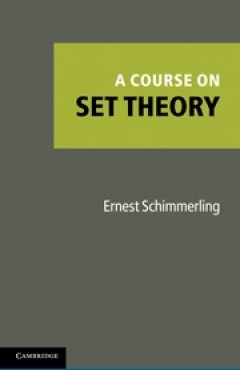
A Course on Set Theory
Set theory is the mathematics of infinity and part of the core curriculum for mathematics majors. This book blends theory and connections with other parts of mathematics so that readers can understand the place of set theory within the wider context. Beginning with the theoretical fundamentals, the author proceeds to illustrate applications to topology, analysis and combinatorics, as well as to…
- Edition
- -
- ISBN/ISSN
- 9780511996351
- Collation
- -
- Series Title
- -
- Call Number
- -

Language and Belonging Local Categories and Practices in a Guatemalan Highla…
In this book, the author introduces belonging from a sociolinguistic perspective as a concept that is accomplished in interaction. Belonging can be expressed linguistically in social, spatial and temporal categories – indexing rootedness, groupness and cohesion. It can also be captured through shared linguistic practices within a group, e.g. collectively shared narrative practices. Using conv…
- Edition
- -
- ISBN/ISSN
- 9783631768921
- Collation
- -
- Series Title
- -
- Call Number
- -
 Computer Science, Information & General Works
Computer Science, Information & General Works  Philosophy & Psychology
Philosophy & Psychology  Religion
Religion  Social Sciences
Social Sciences  Language
Language  Pure Science
Pure Science  Applied Sciences
Applied Sciences  Art & Recreation
Art & Recreation  Literature
Literature  History & Geography
History & Geography